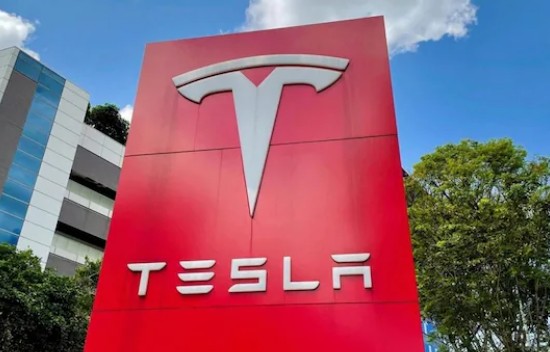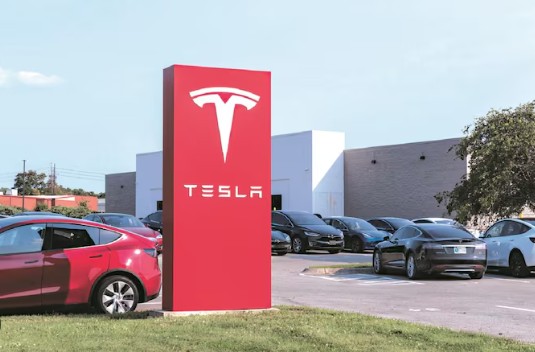Tesla Steers into India: Showrooms Launch Next Month as EV Giant Eyes Untapped Growth
New Delhi, India – June 21, 2025 – After years of speculation, high-stakes negotiations, and an intricate dance with India’s tariff policies, Tesla Inc. is finally set to officially enter the Indian market. Sources familiar with the developments confirm that the electric vehicle (EV) behemoth will open its first showrooms as early as mid-July, kicking off formal operations in what is now the world’s third-biggest automobile market. This long-awaited move signals Tesla’s aggressive pursuit of new growth avenues, particularly as sales in established markets like Europe and China have shown signs of softening.
The initial phase of Tesla’s Indian foray will see its first showroom debut in Mumbai, quickly followed by a second strategically located in New Delhi. This targeted approach aims to capture the attention of premium consumers in India’s major economic hubs. Preparations are well underway, with documents showing that Tesla has already imported crucial components for its Supercharger network, along with car accessories, merchandise, and spare parts from its global facilities in the US, China, and the Netherlands.

A Long and Winding Road to Entry:
Tesla’s entry into India has been a prolonged saga, marked by an “on-again, off-again” dynamic. For years, Elon Musk had eyed the immense potential of the Indian market but remained hesitant due to significant disagreements over India’s high import tariffs on fully built vehicles and the government’s push for local manufacturing. The critical breakthrough came earlier this year in February, following a high-profile meeting between Elon Musk and Indian Prime Minister Narendra Modi in the US, a clear indication that a mutually agreeable path forward had been forged.
Bloomberg News had reported in February that Tesla was already preparing to ship “a few thousand cars” to a port near Mumbai, foreshadowing the imminent launch. Now, specific details are emerging: at least five Model Y vehicles, manufactured at Tesla’s Shanghai Gigafactory, have already arrived in Mumbai. Import documents reveal these cars were declared at a value of ₹2.77 million (approximately $31,988) and attracted over ₹2.1 million in import duties. This levy is consistent with India’s current 70% tariff on fully-built imported vehicles, plus additional surcharges.
The Premium Price Hurdle:
Despite the declared value, the Model Y is expected to go on sale in India for more than $56,000 before taxes and insurance. This price point will be significantly higher than the same model’s ex-showroom price of $44,990 in the US, which further reduces to $37,490 after tax credits are applied. This premium pricing is poised to be a major hurdle for Tesla in the price-sensitive Indian market, where the company will need to meticulously calibrate its margin and positioning strategy to convince value-driven consumers.
Strategic Expansion and Operational Buildup:
While Tesla spokespersons did not immediately respond to requests for comment on the showroom openings and preparations, the company is clearly ramping up its operational presence. Although a new country head has not yet been appointed following the departure of Prashanth Menon, Tesla is aggressively hiring across various teams, including charging infrastructure, retail, and policy, indicating a comprehensive approach to building its Indian operations.
The initial imports of the Model Y represent just the tip of the iceberg, as Tesla plans to expand its presence by offering a wider range of models in the future. To support its logistical needs, the company is also actively leasing warehouse space in Karnataka, in India’s south, and is adding more facilities in Gurugram, just outside New Delhi. These strategic locations will facilitate efficient distribution and service operations across the country.
India’s EV Landscape and Tesla’s Position:
Tesla’s entry coincides with a dynamic period for India’s EV market. While still nascent compared to global leaders, the sector is experiencing robust growth, driven by government incentives and a growing environmental consciousness. The Indian government’s new EV policy, introduced in March 2024, offers reduced import duties (15%) for manufacturers who commit to investing at least $500 million in local manufacturing within three years. This policy, designed to attract global players like Tesla, allows for the import of up to 8,000 premium EVs annually at the reduced rate.
However, the high initial price point of the imported Model Y and Tesla’s current reliance on completely built units (CBUs) means it won’t immediately benefit from the full range of incentives available to locally manufactured EVs under schemes like FAME. This might put Tesla at a competitive disadvantage against established domestic players like Tata Motors and MG Motor India, who have already captured significant market share with more affordably priced EVs.
Despite these challenges, Tesla’s global brand appeal and cutting-edge technology are expected to significantly shake up the Indian premium EV segment. Its arrival is likely to spur further competition and accelerate the development of charging infrastructure, contributing to the broader adoption of electric mobility across the nation. As the showrooms prepare to open their doors next month, all eyes will be on how Tesla navigates the unique complexities of the Indian market and whether it can replicate its global success in this crucial new growth territory.

